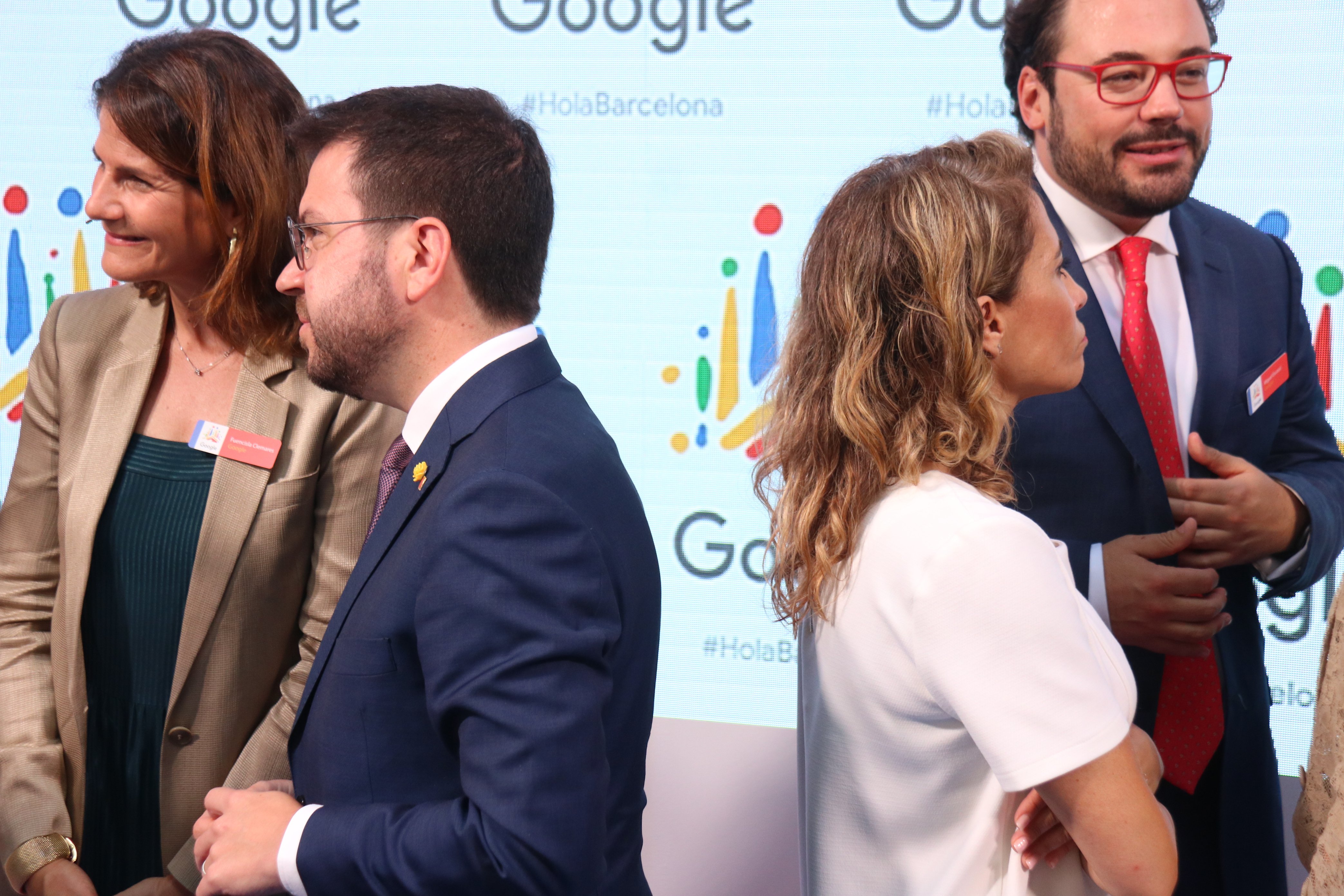The news of the Spanish government's flagrant non-compliance with the execution of its investment commitments in Catalonia in the 2021 budget continues to bring consequences. The most visible demonstration of this fact took place this Wednesday, as the Catalan president, Pere Aragonès, his vice president Jordi Puigneró, and the Spanish transport minister, Raquel Sánchez, met in Barcelona for a full half hour. The position of the Catalan execuctive was clear: a demand for credible explanations for how these planned investment came to be skipped and an insistence that the investments move forward immediately. The explanations of the Spanish minister, on the other hand, following the same lines as have been stated over the last two days, were completely insufficient for the Catalan leaders. In fact, this reached the point where president Aragonès said, upon leaving the meeting, that it was "time for compliances and not for words", insisting that the Spanish executive react and that, finally, the investments will reach Catalonia as promised.
This meeting comes two days after it emerged that the Spanish government has only executed 35% of the investments planned for Catalonia in the 2021 budget, a percentage that translates into only 739 million euros out of more than 2 billion that were budgeted. In itself, this deficiency is frightening, but it becomes even more when compared to the fact that in the Community of Madrid, the execution level for budgeted investments was 184% - everything promised was delivered, and nearly twice as much again - a dramatic contrast with the actual spending carried out by the state in Catalonia.
The meeting between the Catalan and Spanish government officials came after the opening of the new Google office in Barcelona, its second centre in Spain. The event was held this Wednesday at the Espai Serrahima, a former textile plant near the city's Plaça Espanya, and was also attended by Catalan business minister Roger Torrent and the Barcelona first deputy mayor, Jaume Collboni, among others. The closing speech at the event was given of Aragonès, who remarked that the arrival of a company like Google shows how attractive Barcelona and Catalonia are and reaffirms the idea that it is a great pole for the attraction of talent.
During his address, Aragonès remarked on more than one occasion that Catalonia does not have great natural resources, but that it has always invested in talent and productive capacity, to end up being a competitive region within Europe. This led the country to become a authentic powerhouse in the textile sector 200 years ago, said Aragonès, and a similar approach was necessary now to reindustrialize the country and adapt to the changes that are arriving, through digitization and the ecological transition.
At the same time, the president highlighted the country's good strategic location as a gateway to Europe as well as being a major point of attraction for talent. For all of these reasons, Aragonès celebrated the arrival of Google in Barcelona through its in-person office in the city that opens with a staff of 40, which according to the president, will make it possible for Barcelona, and Catalonia, to be closer to being the major tech capital of southern Europe. In this regard, he stressed that Catalonia has "great strategic opportunities", such as the value chain for European chips, and that it is beginning to be a major pole of attraction for foreign investment thanks to a large business and entrepreneurial ecosystem.
Sánchez highlights economic renewal
In her own speech, the minister Raquel Sánchez, portfolio holder for Transport, Mobility and Urban Agenda, said that as a result of the Spanish government's modernization strategy for the economy, Barcelona and Catalonia have a great future ahead of them and must be one of the motors of Spain. Specifically, she stressed that a major commitment is being made to improve the productive capacity of the state and that the arrival of Google in Barcelona fits perfectly with the plans of the Spanish government, as it is part of the change that is sought. At the same time, Sánchez said that there is a firm commitment to "compete" with the countries that are currently more advanced, and that to achieve this goal, many things will have to change, such as the digitization of the business fabric and the conditions of workers, and that is why the arrival of Google, as a powerful ally in this process, is key.

